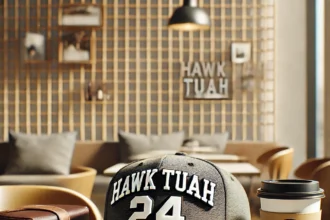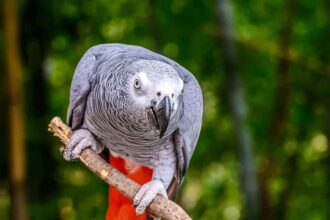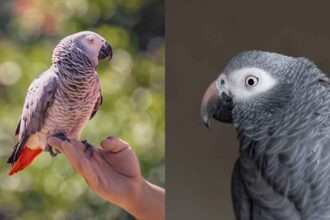Millions of homes all around benefit from the delightful and energetic pets known as budgies, sometimes referred to as parakeets. Your budgie’s health and happiness depend on a balanced and nutrient-dense diet. Given the variety of foods your Budgie can find, it can be difficult to get started. From the value of a balanced diet to particular food suggestions and ideas on how to introduce new foods, our definitive Budgie feeding guide will address all you need to know about feeding your feathery buddy.
Knowing Your Budgie’s Dietary Requirements

Small parrots with much vitality, budgies need a diet heavy in nutrition. Maintaining the general health, vivid plumage, and active activity of your Budgie depends on a well-balanced diet. A Budgie’s diet should consist mostly of pellets or complete food since they contain all the necessary nutrients. Apart from pellets, Budgies gain from a range of fruits, vegetables, seeds, sprouting seeds, and sometimes treats.
Complete Foods and Pellets: The Baseline of a Budgie’s Diet
Your Budgie should consume pellets or whole foods about 60 to 80 percent of their diet. These foods are especially designed to satisfy Budgies’ dietary requirements, therefore guaranteeing the correct balance of minerals, vitamins, and other vital components. Feeding pellets has major benefits mostly related to their nutritional balance. Designed to be nutritionally complete, pellets give your budgie all the vital minerals it requires in every mouthful. This helps avoid nutritional deficits sometimes brought on by diets emphasizing seeds alone. One more benefit of pellets is they lessen selective eating. Unlike seed mixtures, in which Budgies may choose their preferred seeds and discard the others, pellets promote a more equal consumption of nutrients.
Lafeber Nutri Berries for Small Parrots is a favorite among the highly recommended pelleted foods among Budgie owners. Comprising forty vital nutrients, this product is balanced. Apart from fulfilling your Budgie’s dietary requirements, it promotes foraging activity, which is fantastic for cerebral stimulation. Fiory MicroPills by Johnston and Jeff is yet another great pick. For smaller birds like budgies, these pellets provide a good and all-encompassing maintenance food. For Budgies moving from a seed-based diet, they are a fantastic alternative since they are highly tasty and easy to digest.
Making a nutrient-dense addition by sprouting and soaking seeds
Perfect ways to include fresh, live foods into your Budgie’s diet include sprouting and soaking seeds. These seeds are bursting with nutrients and enzymes your bird would find helpful for its health. A better choice for feeding sprouting seeds are easier to break down and have more nutrients than dry seeds. First you soak seeds in water for eight to twelve hours to start germination. The seeds should be completely cleaned and drained following soaking. To keep the seeds wet and stop mold development, place them in a sprouting container or a jar covered in mesh lid and rinse them twice a day. After a few days, the seeds should begin to sprout; once they do, you can present them to your Budgie alongside their usual meal. One can keep sprouting seeds in the refrigerator for several days.
Sprouting seeds has several advantages. In vitamins, minerals, and amino acids, they are richer than dry seeds. They also include digesting-helping enzymes. Sprouting also gives your Budgie’s diet diversity, which is vital for both their physical and emotional health.
Seeds: A Savory, Though Moderated, Dietary Essential

Although a Budgie’s diet naturally includes seeds, they shouldn’t be its main source of nutrition. If eaten only, seeds lack many vital elements and are heavy in fat, which can cause obesity and nutritional inadequacies. Still, seeds can be a delicious and interesting treat for your Budgie when offered in line with a balanced diet.
The Tidymix Parakeet Diet is one of the highly advised seed mixes. Made from 21 human-grade components all of great nutritional value, this premium seed combination Veterinarians also advise it since it offers a decent mix of grains, nuts, and other healthy foods. With a combination of oil seeds, fruits, and vegetables, Hagen Living World Budgie Premium Seed is another highly praised choice. This blend is a beak-wateringly great one for your Budgie since it is enhanced with nutrients and vitamins to promote his health.
Feed seeds in moderation; they are not everything. The whole diet of your Budgie should consist of no more than 20–30% of seeds. Seeds can be blended with pellets and fresh vegetables to inspire a more balanced diet.
Vegetables: A Key Provider of Minerals and Vitamins
A budgie’s diet must include vegetables since they offer crucial nutrients, vitamins, and fiber. Particularly good are dark leafy greens and vibrantly colored vegetables since they are high in antioxidants and other nutrients that support general health.
Among the veggies your Budgie should eat are carrots, broccoli, and kale. Superfood for Budgies, kale is high in calcium, vitamin A, and other vital minerals. It supports general vitality, immune system performance, and bone strength. Another nutrient-dense veggie Budgies love is broccoli. High in vitamin C, fiber, and antioxidants—all of which are vital for preserving excellent health—it is Beta-carotene, found in great abundance in carrots, is turned in the body into vitamin A. Skin integrity, immune system action, and eye health all depend on vitamin A.
Convenience calls for choices like Kaytee Bird Greens with Chia and Sweet Potato. For extra nutrition, this combination includes sweet potatoes and chia seeds along with nutrient-dense vegetables.
Gradually introducing fresh veggies is crucial since some budgies might be finicky eaters. Start with little amounts and toss them with dishes you know. To keep their nutrients, most vegetables should be presented raw; they should also be carefully cleaned before serving to eliminate any pesticides or pollutants.
Fruits: A Delicious and Packed in nutrients Treat
Your Budgie’s diet would benefit much from the tasty and healthful additions fruits offer. Essential for general health are vitamins, minerals, and antioxidants they offer. But given their great sugar load, fruits should be eaten in moderation.
Your Budgie would benefit much from fruits such apples, cranberries, and mangoes. Although apples are a good source of fiber and vitamin C, it’s crucial to remove the seeds since they contain cyanide, which poisons Budgies. Rich in vitamins C and antioxidants, cranberries help immune system and general health. Mangoes abound in vitamins A and C as well as in fiber and antioxidants. Budgies adore tropical treats like this.
Fruits’ natural sugars mean they should be eaten in moderation. Enough is a little bit of fruit couple times a week. Providing a selection of fruits guarantees your budgie a range of nutrition and keeps them interested.
Extra Treats: Improving Your Budgie’s Diet
Apart from the main elements of their food, Budgies enjoy a range of indulgences that can provide enrichment and nutrition to their daily consumption. Treats can also help your Budgie bond and be trained.
Among the healthful treat choices are Vitapol Treat Sticks, Lafeber Original AviCakes for Small Parrots, and Palm Nut Fruit Extract Oil. Rich in good lipids, palm nut fruit extract oil can assist to enhance feather condition and general skin integrity. Perfect for motivating foraging and cerebral stimulation, Lafeber Original AviCakes for Small Parrots mix the taste of seeds with the nutrients of pellets. Made with premium ingredients Budgies adore, Vitapol Treat Sticks are a fun way to vary their diet.
Treats have great motivating potential for learning. Reward positive behavior and promote bonding using little bits of your budgie’s preferred goodie. Treats should be limited, though, since overindulgence can result in obesity and other medical problems. Treats should make no more than 10% of your Budgie’s daily intake.
Vitamins: Boosting the Health of Your Budgie
Although a healthy diet should supply all the nutrients your budgie requires, occasionally certain health issues call for supplements. Particularly in breeding or aged Budgies, calcium and vitamin supplements are routinely used to enhance bone health and general vitality.
Since cuttlebone is a natural source of calcium, calcium supplements—including cuttlebone—are rather popular among Budgies. Cuttlebone also keeps their beaks in good shape and trimming free. Essential minerals and trace elements found in mineral blocks could be deficient in your budgie’s diet. Particularly if your Budgie is not eating a well-balanced diet, vitamin supplements—like liquid vitamin drops—can be added to their water or food to guarantee they obtain a full range of vitamins.
See a veterinarian before including any supplements into your Budgie’s food. It’s important to be sure your Budgie truly requires the extra nutrients since over-supplementation can be detrimental. Supplements should be used sparingly and just when needed; they should not substitute a balanced diet.





